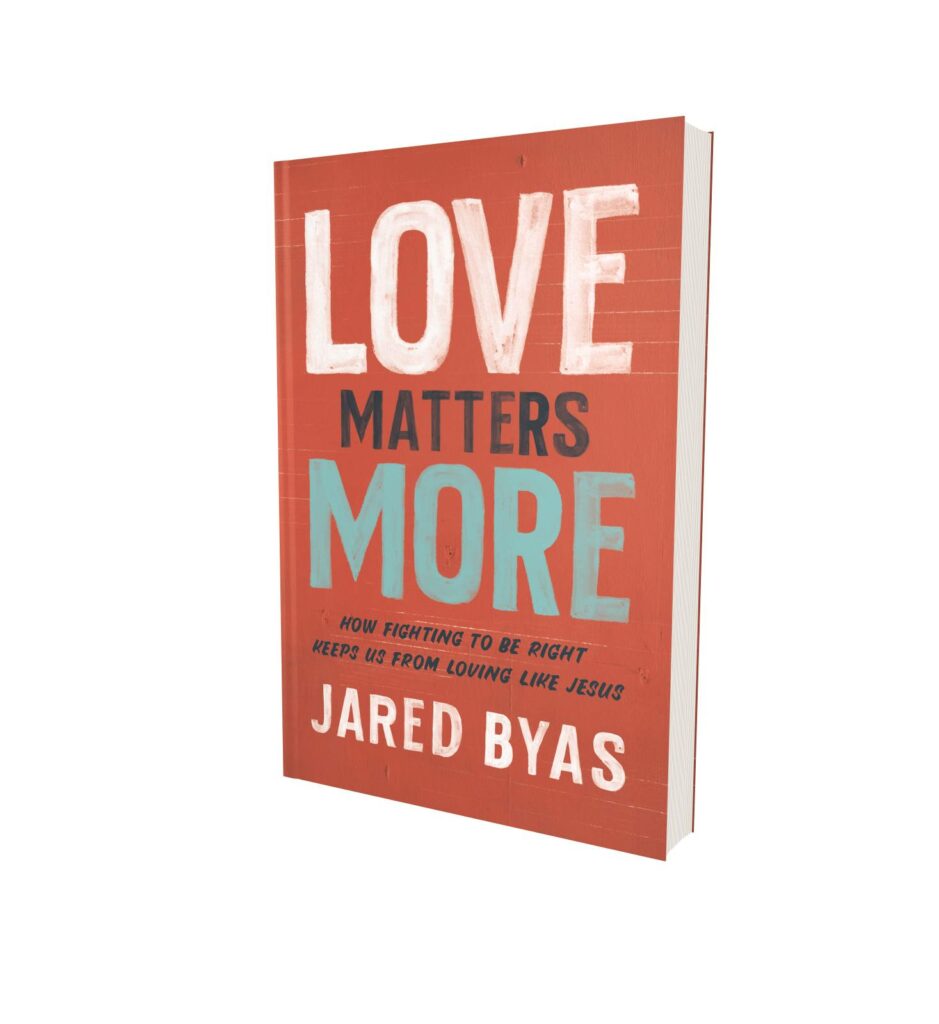No.
Thanks everyone for coming to my TED talk.
Alright fine, I’ll say a little more. Ever since my book came out Love Matters More, there has been some pushback. Most of it has been from young white dudes who didn’t read it but dismissed it as wrong-headed simply because of the title. Thanks Chad for making my point for me in your Facebook rant about why I’m wrong.
But there were a few more earnest people who were worried by my statement that even the Bible can’t give us access to Absolute Truth. So, here’s a brief deeper dive into why that seems to be the case for me.
The Bible Is Contextually Human.
The Bible has human fingerprints all over it. I mean that in the most boring way possible. It uses a language that humans in a particular time and place understood and that most of us don’t. It uses phrases that meant something different back then than it does now (see the following verses where the word for “foot” is a euphemism for genitals: Isa. 7:20, Deut 28:57, Ezek. 16:25, 2 Sam. 11:8, Prov 19:2, et al). That means it’s not a modern book. That means it doesn’t have a modern mindset. I simply don’t even understand what it means for a very contextually human book to give us access to Absolute Truth. Like, is it the Absolute Truth that “feet” can mean “genitals”?
Some might say, “Well, we can filter out the very human parts and can find the parts where it is telling us Absolute Truth.” But that actually doesn’t make things simpler, it makes them more complicated. Which brings me to my very next part.
The Bible Must Be Interpreted by Humans.
What filter do I use? If some parts do give us access to Absolute Truth and others are “contextually human,” how would I possibly know which is which? I would need a Divine Filter, which is to say, a Divine Interpreter. The problem is, we don’t have a divine interpreter. Only human interpreters.
Even if the Bible in its “pure form” (whatever that means) is tapped into Ultimate Reality, I am still interpreting. And if I don’t know Greek or Hebrew, I am interpreting someone else’s interpretation (as my Seminary professor taught me – all translation is interpretation).
- There are, currently, not historically, but currently, over 33,000 different Christian denominations.
- In just the last 50 years, 132 commentaries have been published on the book of Matthew in English alone.
Why do I share that? Because growing up in my tradition, I would often hear that the proper way to read the Bible isn’t to “interpret it” but just to “read it.” Or, the Bible is clear – we don’t need to “interpret it,” just “read what it says.” But if it’s so clear, why are there 33,000 different takes on it? And why did 132 scholarly books get published on the book of Matthew?
And if it is giving us access to Absolute Truth, why do we find so much diversity that must be interpreted for its significance?
We start with 2 Creation Stories (1:1-2:4a & 2:4b-end of chapter 3) then move to 2 Sets of the Law (Exodus, Leviticus, Numbers & then Deuteronomy), then to 2 Histories of Israel (Samuel-Kings & then Chronicles). Fortunately, when we get to the really important stuff we have one straightforward narrative of the life of Jesus. Oh wait, nevermind. We get 4.
The Bible, like Humans, is Not God.
Ultimately, our offense at the idea that the Bible doesn’t give us Absolute Truth shows we have made the Bible an idol. And you know what, that’s not the Bible’s fault. There isn’t anything wrong with the Bible. There is nothing that gives us that access. The project was doomed from the start. By the way, I’m quite okay with that. When Jesus left the Earth he didn’t say that it’s good for him to go away because when he leaves he’ll leave to us an unchanging book but the Advocate/Spirit of Truth (John 16), which cannot be controlled or be unchanging because “The wind blows wherever it pleases. You hear its sound, but you cannot tell where it comes from or where it is going. So it is with everyone born of the Spirit” (John 3:8-9)
So, it seems, faith is about the humility to acknowledge we do not know it all and trusting that it’s enough to be known by the one who does.
“For now we see only a reflection as in a mirror; then we shall see face to face. Now I know in part; then I shall know fully, even as I am fully known.” – 1 Corinthians 13: 1


